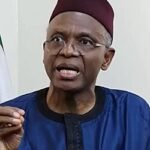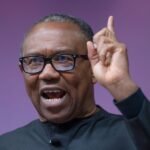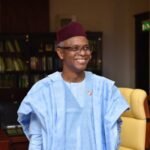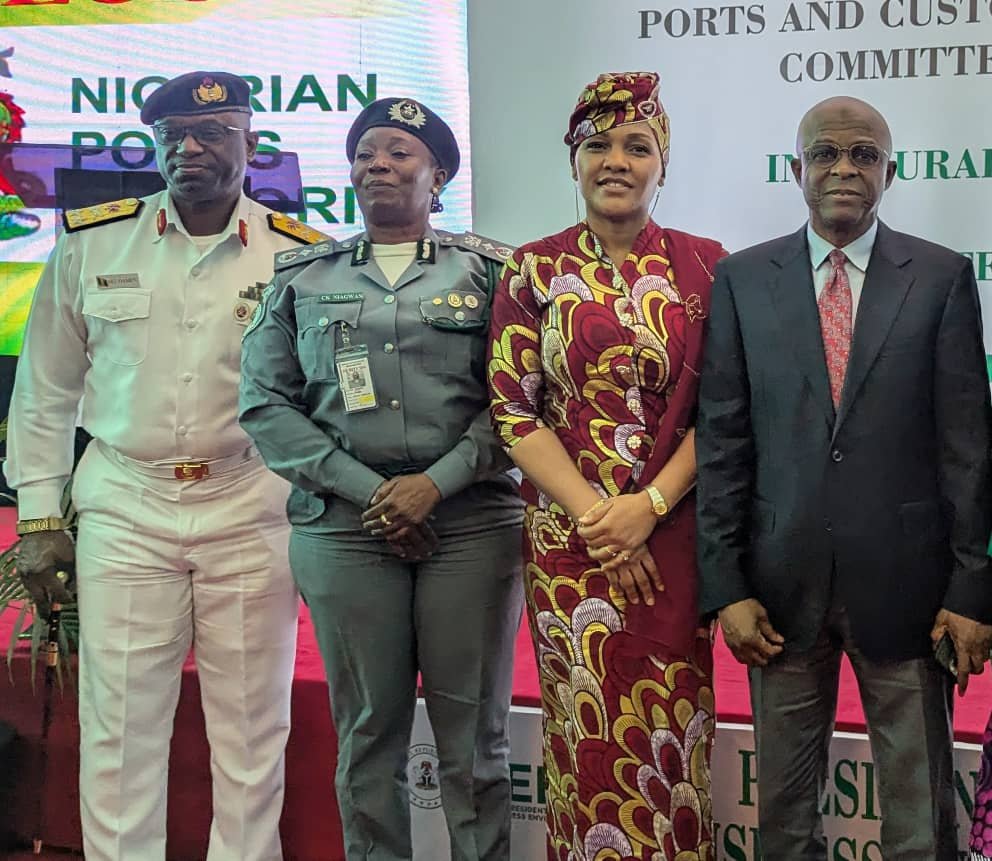.Lagos: (NAN)/Flowerbudnews: The Presidential Enabling Business Environment Council (PEBEC) and the Nigerian Ports Authority (NPA) have inaugurated the Ports and Customs Efficiency Committee (PCEC) to enhance efficiency and improve the ease of doing business at the nation’s seaports.
The Vice President of the Federal Republic of Nigeria, Alhaji Kashim Shettima, said this at the inaugural meeting of the PCEC held in Lagos on Thursday.
The News Agency of Nigeria (NAN) reports that the Vice President, represented by the Director General of PEBEC, Ms Zahrah Audu, said improving efficiencies at the nation’s seaports would reduce cargo dwell time and improve vessel turnaround and turnover for customers.
According to her, the committee was launched to change the narrative of missed opportunities in the maritime sector, unlock potential opportunities, and enhance Nigeria’s economy.
Shettima explained that improving efficiencies in Nigerian ports could drastically reduce the average cargo dwell time and turnover time for customers, eliminate the duplication of documentation and manual processes and ensure customer satisfaction.
“This is not just another one of our reforms; this is about resilience, unlocking potential opportunities, and enhancing Nigeria’s economy.
“This is not just a committee made up of government forces for change, but also includes many private sector stakeholders.

(From L-R
Rear Admiral Michael Oawen, Deputy Comptroller General of Customs in Charge of Tariff and Trade, Caroline Niagwan, the Director General, Presidential Enabling Business Environment Council (PEBEC), Ms Zahra Audu and the Managing Director, Nigeria Ports Authority (NPA), Dr Abubakar Dantsoho during the inauguration of the PEBEC committee held in Lagos on Thursday)
“It is a call to action for terminal operators to improve infrastructure and for shipping companies to increase efficiency to reduce delays.
“There is a need for freight forwarders to uphold compliance and for regulators to reduce bureaucratic bottlenecks.
“It is a call for shared ownership of our shared problem and a commitment to deliver a shared solution,” she said.
Shettima stated that the Customs committee was established to go beyond identifying problems and begin implementing the solutions that were long overdue.
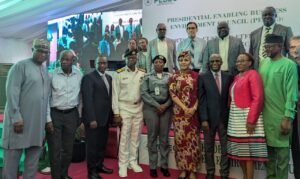
(A group picture of ports stakeholders, Government agencies and dignities during the inauguration of the PEBEC committee held in Lagos on Thursday)
During the interactive session, Audu attested that Nigeria lost a significant amount every single day due to inefficiencies at the ports.
“These are not just numbers; these are missed opportunities.
“They represent jobs not created, goods not delivered, investments not realized and economic growth that is unnecessarily delayed.
“The Ports and Customs Efficiency Committee has been established to change this narrative, to go beyond identifying the problems we already know and begin implementing the solutions we all agree are long overdue.

“At PEBEC, our mandate has been very clear: to remove bureaucratic bottlenecks that hinder people from doing business at Nigerian seaports.
“Since 2016, we have driven over 200 reforms across sectors, collaborating with ministries, departments, agencies, and the private sector. Since I came on board, I’ve taken it one step further.
“So, beyond passing or helping pass reforms or policies, it’s time for us to focus on the implementation and practical output of what these reforms can translate into. This is why this committee is important to us,” Audu said.
She said that the Ports and Customs Efficiency Committee was not an observer group but an action-oriented, high-impact one, charged with driving sustainable improvement in service delivery at Nigerian ports.
Audu affirmed that the committee would work hand-in-hand with agencies like the Nigerian Ports Authority, the Nigerian Customs Service, other government agencies, and all stakeholders within port operations, adding that it was a reform ecosystem that would accommodate key players.

Speaking earlier, the Managing Director of NPA, Dr Abubakar Dantsoho, said the authority was currently addressing four major pillars critical to repositioning the nation’s seaports to compete effectively with regional counterparts.
According to him, investment in infrastructure, equipment, technology and human capacity will improve the competitiveness and operational efficiency of the nation’s seaports.
Dantsoho affirmed that port infrastructure, particularly in Apapa and Tin Can Island ports, was aged and in dire need of rehabilitation.
Dantsoho said that Tin Can port was constructed about 48 years ago and Apapa almost 100 years ago, adding that no major rehabilitation had taken place all these years.
He noted that the Federal Government had recently approved the reconstruction of both ports, which would significantly improve berth depth and cargo handling capacity.
On the technological front, the NPA boss disclosed that the authority was working closely with the International Maritime Organization (IMO) to deploy the Port Community System (PCS), which he described as the backbone for the National Single Window.
He said that PCS would eliminate paperwork and reduce human interface, thereby improving transparency, reducing costs, and boosting efficiency and revenue generation.
In terms of human capital, Dantsoho said the NPA was intensifying efforts to upgrade the skills of pilots and technical personnel to meet modern navigational and operational demands.
He reiterated the importance of inter-agency collaboration across operational areas, adding that NPA could not do it alone.
Dantsoho said that efficiency should cut across all segments for Nigeria to truly optimize revenue and compete globally.
The Deputy Comptroller in Charge of Trade and Tariff, Caroline Niagwan, called for the need to implement measures that require Public-Private Partnerships, as well as regular commitment, to enable the government to achieve ease of doing business.
Niagwan said that for Nigeria to achieve port effectiveness, there should be sustained investment in infrastructure, cargo handling equipment and efficiency.
Also in his contribution, Rear Admiral Michael Oamen pledged the navy’s support in ensuring no piracy attacks occur in Nigerian territorial waters, which he said would give foreign investors opportunities to call at Nigerian ports






